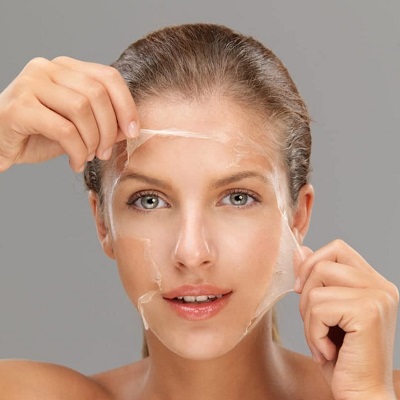Chemical Peels: Are They Safe for Sensitive Skin
 0
0
Posted: Mon October 28 3:18 AM PDT
Member: Nimra Jamal
Chemical peels are a popular skincare treatment used to improve the appearance of the skin by exfoliating the outer layer. However, many people with sensitive skin often wonder if these treatments are suitable for them. In this article, we will delve into the safety of chemical peels for sensitive skin, discuss various types of chemical peels, and explore the Chemical Peels Cost in Dubai.
What Are Chemical Peels?
Chemical peels involve the application of a chemical solution to the skin, which causes it to exfoliate and eventually peel off. This process reveals newer, healthier skin underneath. Chemical peels can be categorized into three main types:
-
Superficial Peels: These peels use mild acids to gently exfoliate the skin's surface. They are suitable for all skin types and have minimal downtime.
-
Medium Peels: These involve stronger acids that penetrate deeper into the skin. They are effective for treating fine lines, acne scars, and pigmentation issues but may require more recovery time.
-
Deep Peels: These are the most intensive, often requiring sedation. They can treat more severe skin issues but also come with longer recovery times and higher risks.

Are Chemical Peels Safe for Sensitive Skin?
Understanding Sensitive Skin
Sensitive skin is often prone to reactions, such as redness, irritation, or allergic responses. Factors contributing to sensitive skin include genetics, environmental influences, and underlying skin conditions such as eczema or rosacea.
Risks of Chemical Peels for Sensitive Skin
While chemical peels can offer numerous benefits, individuals with sensitive skin should approach these treatments with caution. Some potential risks include:
-
Irritation and Redness: Sensitive skin may react more intensely to the chemicals used in peels, leading to increased redness and discomfort.
-
Prolonged Healing Time: Recovery may take longer for individuals with sensitive skin, potentially leading to prolonged irritation.
-
Allergic Reactions: There is a risk of allergic reactions to the chemicals used in peels, especially for those with known sensitivities.
Benefits of Chemical Peels for Sensitive Skin
Despite these risks, chemical peels can still be beneficial for sensitive skin when performed correctly. Benefits include:
-
Improved Skin Texture: Superficial peels can enhance skin texture and brightness without deep irritation.
-
Acne Management: Certain chemical peels can help treat acne and prevent future breakouts by unclogging pores and removing dead skin cells.
-
Reduced Hyperpigmentation: Chemical peels can lighten dark spots and even out skin tone, which can be particularly beneficial for those with sensitive skin.
Preparing for a Chemical Peel
Consultation with a Dermatologist
Before undergoing a chemical peel, it's essential to consult with a dermatologist who can assess your skin type and determine if a peel is suitable for you. During the consultation, be sure to discuss:
- Your skin's sensitivity and any previous reactions to skincare treatments.
- Any medications or skincare products you are currently using.
- Your expectations and desired outcomes from the peel.
Patch Test
A patch test may be recommended to evaluate how your skin reacts to the chemical solution. This can help minimize the risk of adverse reactions during the actual treatment.
The Chemical Peel Procedure
What to Expect
During the procedure, the dermatologist will cleanse your skin and apply the chemical solution. You may experience a tingling or burning sensation, which is normal. The length of the treatment will depend on the type of peel being administered:
- Superficial Peels: Typically last around 30 minutes.
- Medium Peels: Can take up to an hour.
- Deep Peels: May require a longer session and sedation.
Post-Treatment Care
After the peel, your skin may be red and sensitive. Follow these aftercare tips to promote healing:
- Moisturize: Use a gentle, hydrating moisturizer to soothe the skin.
- Avoid Sun Exposure: Protect your skin from the sun by wearing sunscreen and avoiding direct sunlight.
- Skip Harsh Products: Refrain from using exfoliants or products with active ingredients (like retinoids) for several days.
Chemical Peels Cost in Dubai
The Chemical Peels Cost in Dubai can range from AED 499 to AED 999, depending on several factors, including the type of peel, the experience of the dermatologist, and the clinic's location.
Breakdown of Costs
-
Superficial Peels: These are generally the most affordable, ranging from AED 499 to AED 699. They may require multiple sessions for optimal results.
-
Medium Peels: The cost for medium peels usually falls between AED 700 and AED 899, depending on the specific treatment and the provider.
-
Deep Peels: These can be the most expensive, with prices starting at AED 900 and potentially exceeding AED 999, especially if additional treatments or follow-ups are included.
Insurance Coverage
Check with your insurance provider to see if chemical peels are covered, particularly if they are being performed to treat a medical condition rather than for cosmetic purposes.
Conclusion
Chemical peels can be a safe and effective treatment option for individuals with sensitive skin, provided they are conducted under the guidance of a qualified dermatologist. It is essential to understand the different types of peels and their associated risks and benefits. With the Chemical Peels Cost in Dubai being relatively affordable, those considering this treatment should weigh their options carefully and prioritize skin health. Always consult with a dermatologist to find the best treatment plan tailored to your skin's unique needs.
Comments
Please login above to comment.
